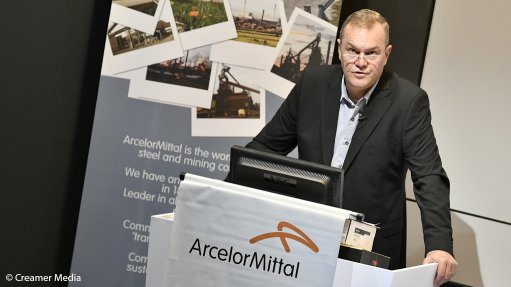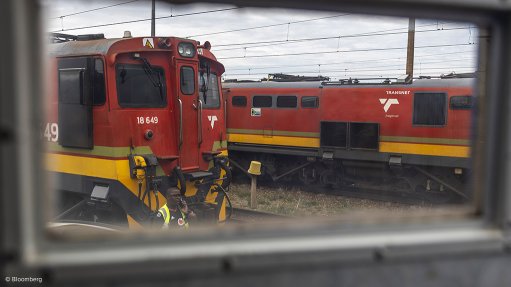Rising critical minerals demand could pose enviro, social risks
The critical mineral resources that are increasingly in demand globally often pose environmental and social risks that need to be managed, the environment, social and governance (ESG) research arm of Fitch Solutions, Sustainable Fitch, has warned.
Global action on climate change has created significant demand for critical minerals, which are used in the production of clean technologies; however, the mining and processing of these minerals bring with it the same impacts as conventional minerals, in some cases even more so, given region-specific issues as of late.
Sustainable Fitch anticipates regulatory, market and social developments relating to aspects such as water use, air pollution and community engagements will become increasingly relevant for those active across critical mineral sectors.
Regional factors, such as exposure to physical climate risks and the prevalence of social inequality, can further exacerbate vulnerability to these issues in certain critical minerals sectors.
Sustainable Fitch adds that geopolitical considerations also closely intersect with environmental and social issues relating to critical mineral development globally.
In Latin America and Africa, for example, recent instances of resource protectionism and nationalisation relate closely to efforts to improve socioeconomic conditions.
This while countries in North America and Europe continue to push for local supply capacity growth, which introduces a new wave of environmental and social issues, particularly as these regions often have stricter regulatory and compliance requirements.
“In general, the specific environmental and social risks associated with individual critical minerals are not substantially different from those of other types of mineral resources.
“However, we believe country- and region-specific issues and concerns are worth noting, as they can greatly influence mineral-specific ESG risks and often individual critical mineral supplies are concentrated in one or a few countries,” explains Sustainable Fitch associate director Jonathon Smith.
Currently, electricity networks present the single largest source of demand for critical minerals, particularly copper and aluminium, which are required for transmission and distribution networks.
Electric vehicles and battery storage applications are the second-largest source of demand for critical minerals, currently centred around copper, graphite and nickel, as well as cobalt and lithium to a smaller extent.
Sustainable Fitch also expects vanadium demand to rise after 2030.
The agency adds that low-carbon power generation will spur demand for silicon, zinc and rare earth elements although in smaller volumes.
Cobalt, for one, has a very concentrated supply chain, with the vast majority of production coming from the Democratic Republic of Congo (DRC). The country is, however, known for many artisanal and small-scale mining operations, which account for between 15% and 30% of regional production, and is often associated with big sustainability concerns – including human safety, labour rights and environmental pollution.
Sustainable Fitch says the lack of regulation and reputational risks associated with indirectly supporting unethical cobalt production have become increasing concerns for buyers, so much so that many seek to replace or remove the mineral from batteries.
Moreover, with China leading in the world’s production of copper and reserves, the country has become increasingly scrutinised for its access to water and community opposition at many large-scale mining projects. Sustainable Fitch says community expectations of local copper mine operators, particularly around employment and the development of essential services, have also become important in the region.
While Sustainable Fitch is not too concerned that transition risks will create material risks for issuers and investors, the compliance costs associated with carbon pricing mechanisms will remain relevant, particularly as higher mineral production drives additional emissions.
Production from countries with progressive carbon pricing systems will face the highest risks over carbon pricing, such as Canada and Chile, which would potentially stall the establishment of new projects in these jurisdictions.
Physical climate risks will continue to pose risks to mining operations both in the near and longer term, with access to water being a potential major issue. Droughts, for example, will likely become more severe in mineral-producing regions such as Asia and Latin America.
Critical minerals requiring more water-intensive extraction and processing methods tend to face the highest associated costs, although regional water stress and availability will also very much influence risks associated with water.
Jurisdictions with limited or weak water governance frameworks, such as Mozambique or DRC, may also become a source of risk for miners, if mismanagement of water resources worsens scarcity.
On the social side, Sustainability Fitch says community opposition to new and existing projects remains a major risk for investors in critical minerals mining projects, as it impacts on project execution and profitability. This foregrounds topics such as companies’ social licence to operate.
Peru is a notable example: in June 2022, at the Las Bambas mining project, which accounts for 2% of global copper supply, a blockade by local communities and indigenous people claiming corporate failure to comply with the environmental impact assessment forced the operator to suspend operations for over 50 days, which cost 60% of its output.
Following the halt, the company suspended its copper production targets for 2022.
The agency concludes that environmental and social issues will become more relevant for investors, requiring greater diligence and oversight, although the risks will vary by region and social context.
Comments
Press Office
Announcements
What's On
Subscribe to improve your user experience...
Option 1 (equivalent of R125 a month):
Receive a weekly copy of Creamer Media's Engineering News & Mining Weekly magazine
(print copy for those in South Africa and e-magazine for those outside of South Africa)
Receive daily email newsletters
Access to full search results
Access archive of magazine back copies
Access to Projects in Progress
Access to ONE Research Report of your choice in PDF format
Option 2 (equivalent of R375 a month):
All benefits from Option 1
PLUS
Access to Creamer Media's Research Channel Africa for ALL Research Reports, in PDF format, on various industrial and mining sectors
including Electricity; Water; Energy Transition; Hydrogen; Roads, Rail and Ports; Coal; Gold; Platinum; Battery Metals; etc.
Already a subscriber?
Forgotten your password?
Receive weekly copy of Creamer Media's Engineering News & Mining Weekly magazine (print copy for those in South Africa and e-magazine for those outside of South Africa)
➕
Recieve daily email newsletters
➕
Access to full search results
➕
Access archive of magazine back copies
➕
Access to Projects in Progress
➕
Access to ONE Research Report of your choice in PDF format
RESEARCH CHANNEL AFRICA
R4500 (equivalent of R375 a month)
SUBSCRIBEAll benefits from Option 1
➕
Access to Creamer Media's Research Channel Africa for ALL Research Reports on various industrial and mining sectors, in PDF format, including on:
Electricity
➕
Water
➕
Energy Transition
➕
Hydrogen
➕
Roads, Rail and Ports
➕
Coal
➕
Gold
➕
Platinum
➕
Battery Metals
➕
etc.
Receive all benefits from Option 1 or Option 2 delivered to numerous people at your company
➕
Multiple User names and Passwords for simultaneous log-ins
➕
Intranet integration access to all in your organisation
















